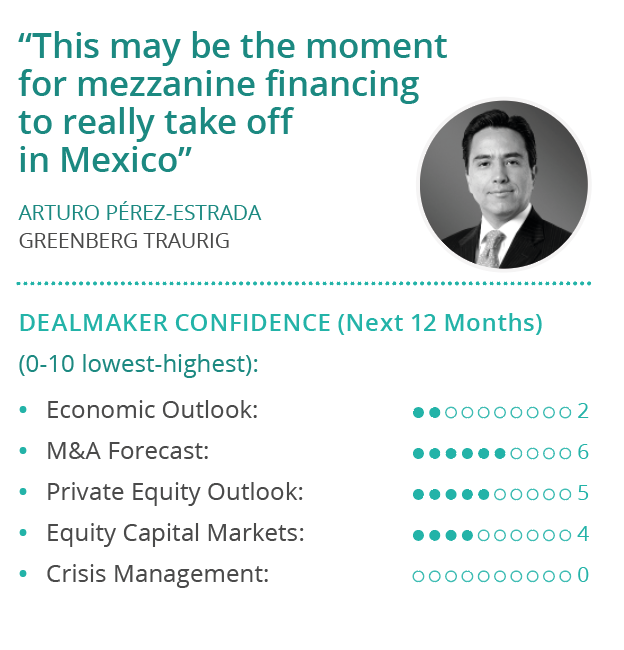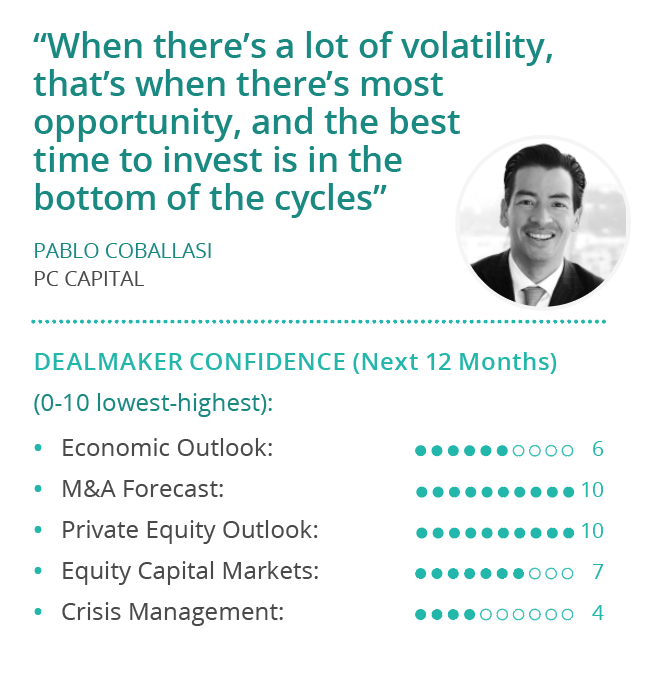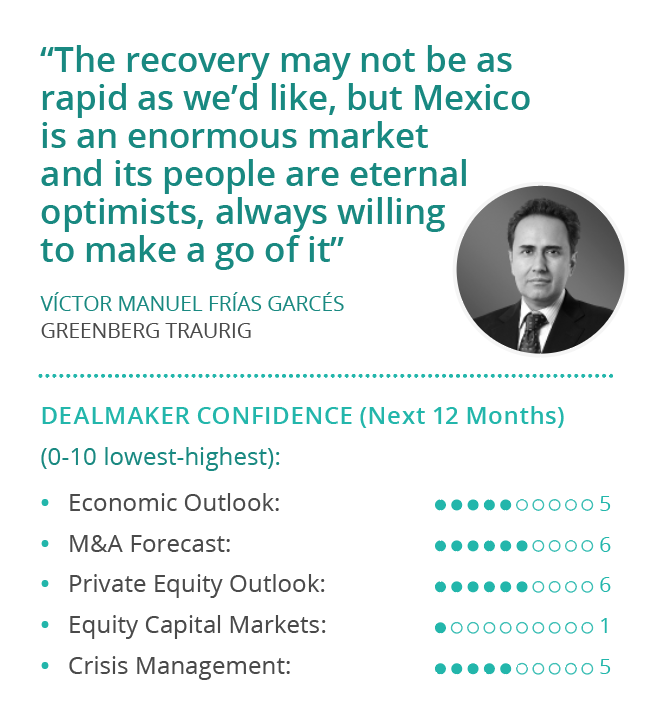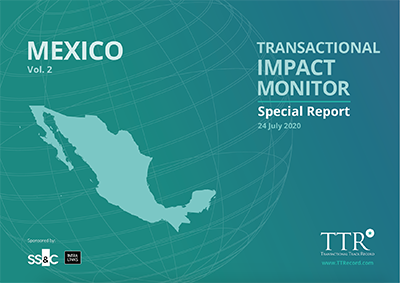Transactional Impact Monitor: Mexico – Vol. 2
24 July 2020
TTR’s Transactional Impact Monitor (TIM) is a Special Report combining local knowledge and market visibility from top dealmakers developed to address extraordinary situations affecting the macroeconomic stability and M&A outlook in core markets
Sponsored by:

INDEX
– M&A Outlook
– Private Equity
– Capital Markets
– Handling the Crisis
– Dealmaker Profiles

On 1 July 2020, the United States-Mexico-Canada Agreement (USMCA) went into effect, replacing the North American Free Trade Agreement signed in 1994. The pact reset the commercial relationship between the three North American nations and reaffirmed Mexico’s preferential trade partner status. The visit of Mexican President Andrés Manuel López Obrador, popularly known as AMLO, to Washington a week later to celebrate the signing of the accord demonstrated that the relationship between the two nations isn’t as tenuous as either leader has depicted in their rhetoric, and underscored the co-dependence that unites both countries.

In their response to the threat of a pandemic, the two leaders have exhibited a remarkably similar attitude: dismissive, contradictory and aloof. Both Mexico and the US have rapidly increased testing for Covid-19 in recent weeks, after initially limiting testing to government labs in March and April. Where the two countries have differed most in their response to the threat of pandemic, is in the release of public funds to shore up liquidity in the markets, with the US distributing trillions of dollars with little oversight or accountability, and Mexico essentially leaving the private sector to fend for itself. Concern over the impact of job losses on the economy is mounting in both countries, alongside a surge in announced Covid-19 cases that puts the US at the top of the chart, followed by Brazil, with Mexico seventh globally, according to official stats.

The outlook at the beginning of 2020 was good, there was a lot of anticipation associated with the new free trade agreement between Mexico, the US and Canada, but there was also uncertainty, said Greenberg Traurig Shareholder Arturo Pérez-Estrada. The private sector was still jarred after Mexico City’s new airport project was scrapped, but there was cautious optimism after a slow year for M&A leading up to AMLO’s election, and the transactional market had begun to stabilize, with an improving pipeline of deals.
The private sector had a tough time shaking off the jitters after AMLO’s election, agreed fellow Greenberg Traurig Shareholder Víctor Manuel Frías Garcés, as Mexico’s largest companies are accustomed to a cozy relationship with government, and it quickly became apparent that this administration wouldn’t nurture such ties.

The pipeline of new investments in the country was sparse, as foreign investors remained reserved, but companies that already had a presence in the country were sticking to their plans, Frías said. “We were facing an outlook of slow economic growth. The government’s policies were not directed towards the strata that promotes M&A,” Frías noted.
Since March, the economy has gone from slow to stagnant, overall, similar to what has happened in other markets, particularly in the US, and companies have become very conservative in the face of weak signals of support from the Mexican government, Pérez-Estrada said. The majority of companies have been reorganizing themselves and have put their expansion plans on hold, he added. “The signing of the new free trade agreement was good news, and of course there will be winners in the downturn, from e-commerce to last-mile logistics and manufacturers of health and cleaning products, but almost everybody else is facing obstacles and preserving cash,” Pérez-Estrada said.
M&A Outlook
… Click here to access the second issue of Transactional Impact Monitor: Mexico – Vol. 2

